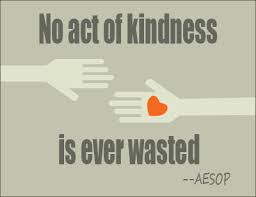Hello from California!! I managed to be retired for all of six weeks before I moved cross country and sign on for a new job. It wasn’t an easy decision, but I think it was a good one!
For the past 30+ years I have worked in small districts in rural, upstate (seriously upstate) New York. For some of those years I taught grades K-8 but the majority of them were teaching high school students. My new job is teaching 6th-8th graders in a suburban, well-populated section of Northern California!
The students had another teacher for over 10 weeks and now we are all starting over.
I had met a few times with the sixth graders and today was our second real day together. They have been out of school for two weeks between Science Camp and Thanksgiving Vacation!!! So yes…we are really, really starting over.
The 8th graders and I got started the week before Thanksgiving. So today was day 6 for us.
I forgot how much there is to accomplish at the beginning…….
These students, all of them, are brand-new to me. Our very first accomplishment will be working together. Seriously. They are used to a different set up in class and mine requires a great deal of self-control…..or at least more than they have had to use. 🙂 I know they are capable. They know they are capable. Now…I have to get them to agree to do it.
The first day I worked with them (class sizes about 30), they were sitting with friends in groups of four. I tried to speak. I tried to get their attention. No one stopped talking. Not one student.
My pulse was racing, my face was flushed, my smile was frozen and my heart was pounding. I did not know the name of one single student. For the first time in nearly 30 years I also did not know their parents, their siblings, or even their other teachers.
I don’t know how long I stood in front of the room before I tried again. It was probably seconds…it felt like hours. I was being completely ignored.
So I tried again. I used a ‘signal’ that their former teacher had used. A few students noticed and responded half-heartedly…then kept right on talking. This was not going the way I had hoped!!!
Try number three….in a slightly louder, more authoritative voice. This time more than half of the class looked at me, shifted in their seats and mumbled a response. AND….made eye contact.
This was the most crucial moment for me. It happened in all three classes. I had to maintain eye contact with the 15 or so students spread across the room. With a smile on my face, I held my ground….for maybe 15 seconds. A small girl near me whispered to me, “I think it’s working!” I tried to just keep breathing!! One by one the rest of the group settled down and then turned around….finally realizing that something was happening. When everyone was quiet I smiled at stared at them while I (painfully!) counted to 5 in my head. Then I finally introduced myself. I think that was the most challenging 30 seconds of my teaching career.
I am dead serious.
I have no history at this school. No reputation precedes me. I felt completely naked and alone in front of those kids waiting for the silence, and for their attention. My head said…wait, wait, wait it out. My heart said…this isn’t going to work…they are going to ignore you forever.
I’d like to say that after that one encounter in each class, that I was able to establish order in a heartbeat with a look. Or at least using our signal.
Um, no. The 8th graders and I have found a direction in the week we have had together…but daily reminders, and those 30 second wait times, while not nearly so heart-pounding, still happen once during every class. The 6th graders? Well….we didn’t get much done today academically. There were maybe 10 “usable” minutes out of 35. i’m still learning names, getting them into a routine, helping them adjust to transitions and working to get them to function with a new seating system (where they all face forward and don’t sit with their friends.)
BUT…in one class 5 of those 10 usable minutes were truly beautiful. Students were asked if their vacation was “excelente” or ‘terrible” or somewhere in between. Only one girl said terrible. I asked her if the reason was a secret, she said no, she wanted to share. (Thankfully the class was quiet and listening….and this, of course, is why we needed it…) She shared in a whisper to me that her aunt had cancer. I told the class in Spanish. Then I asked, in Spanish, ‘Who has a friend, or someone in their family, with cancer?” Over half of the class raised their hands. Even though these kids had only a few weeks of Spanish, I could say to her…The class is with you. They are your friends. You are not alone.
I could tell the class that in 2013 I had cancer. And we learned the word hope.
She needed that. So did I. So did I.
with love,
Laurie
